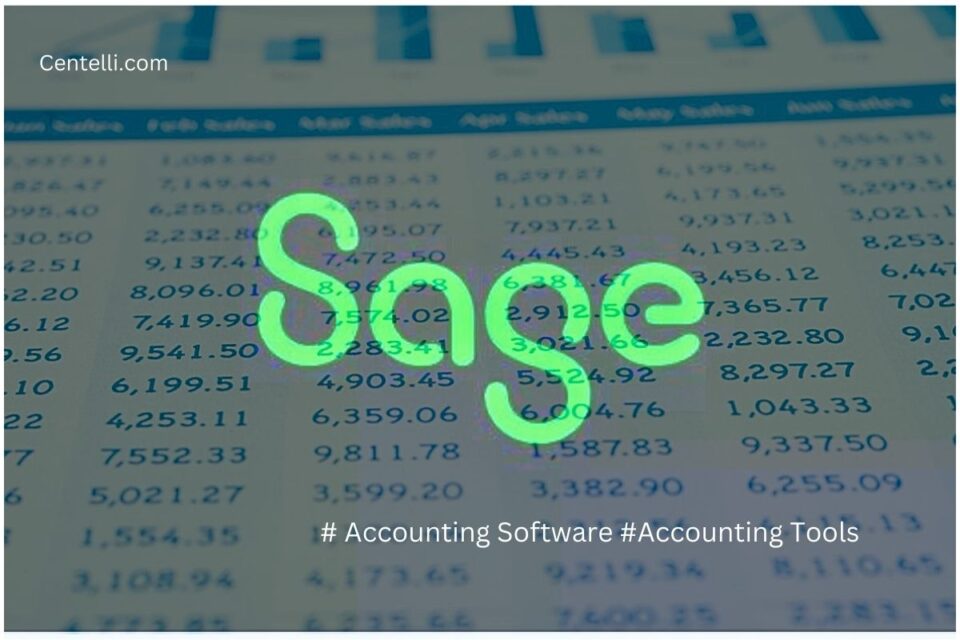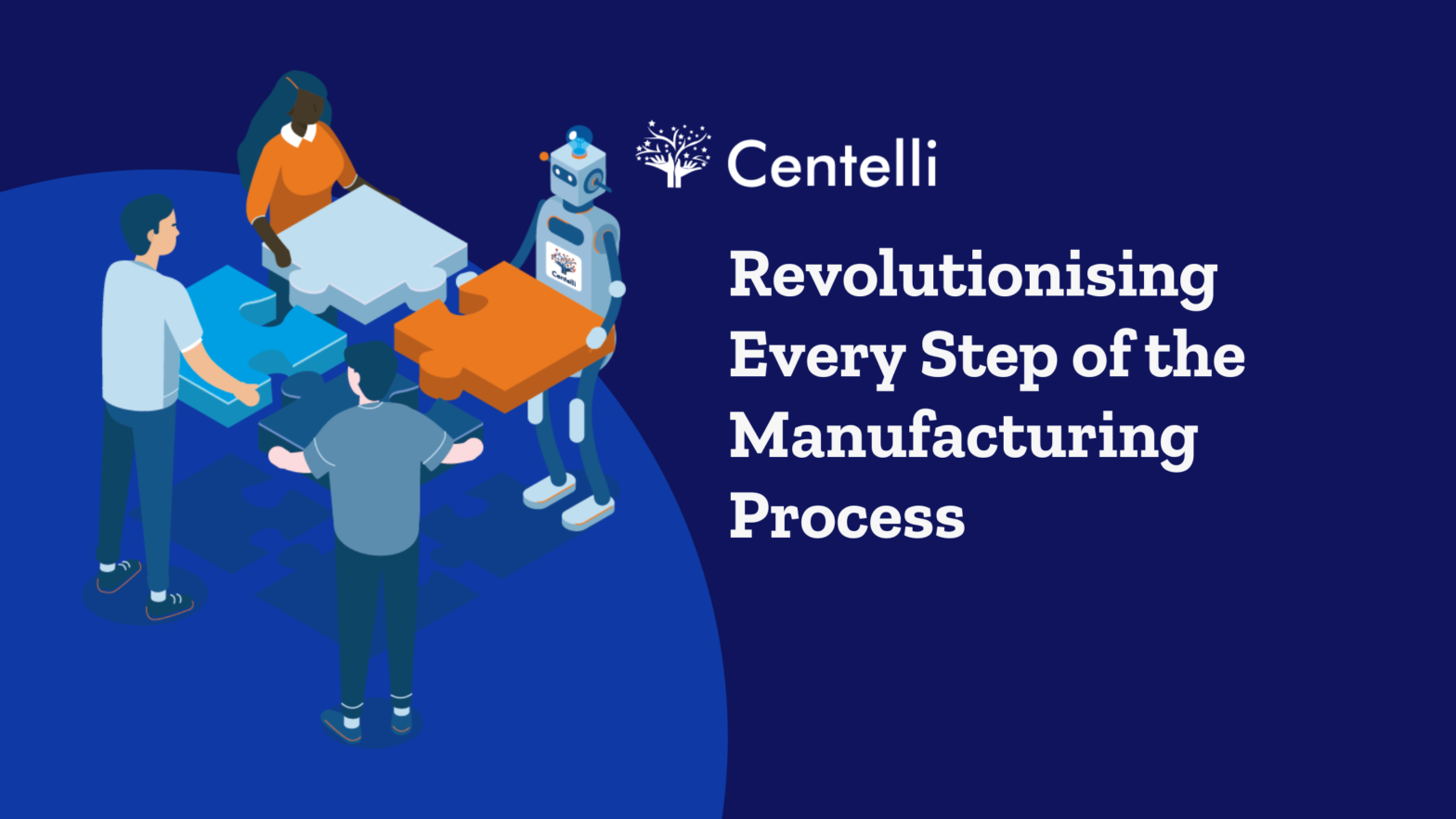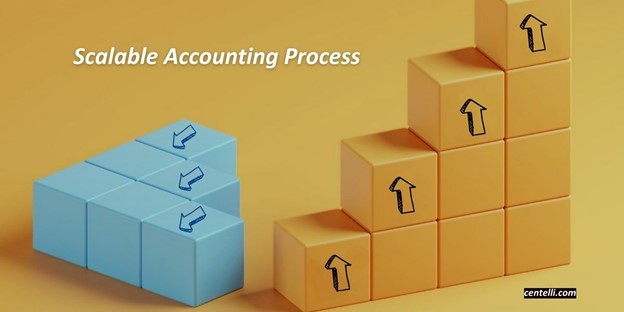
- Accounting Services
- Written By Namita Bhagat
Why You Need a Scalable Accounting Process [with Examples]
29-Apr-2024 . 6 min read
Business is a dynamic field full of opportunities, challenges, and uncertainties. With a scalable infrastructure, technology, or operation, it’s easier to navigate the change. So, you can also build a scalable accounting process for the same reason!
Before we delve into the reasons for scaling your accounting operations, let’s define the concept first.
Well, “scalability” is not a function or a feature by itself. It represents a fundamental characteristic that empowers an organization, system, or process to effectively manage heightened workloads, increased demand, or expansion.
Scaling Your Accounting Process Doesn’t Imply a Scale Up Always
A business’s full cycle accounting needs can evolve due to both external and internal factors.
External triggers could be changing market conditions or evolving regulations. Whereas your shifting business goals and priorities signify the internal triggers.
Therefore, you should be able to adapt your accounting tasks and workflows to accommodate unexpected events or planned strategic initiatives.
Markedly, scaling doesn’t always mean upsizing or increasing your capacity. You may also need or choose to hold back sometimes.
Let’s look at some scenarios for clarity!
There are times when a company needs to expand its accounting team. The reasons could be:
- Growth: A rapidly growing business might need to add more staff and resources to its accounting department. To keep up with the increased workload!
- Expanding into New Markets: When a business expands into new markets, it may need to modify its accounting process to comply with different tax and accounting regulations.
- Mergers & Acquisitions: When a business acquires another company, it may need to integrate the two companies’ accounting systems.
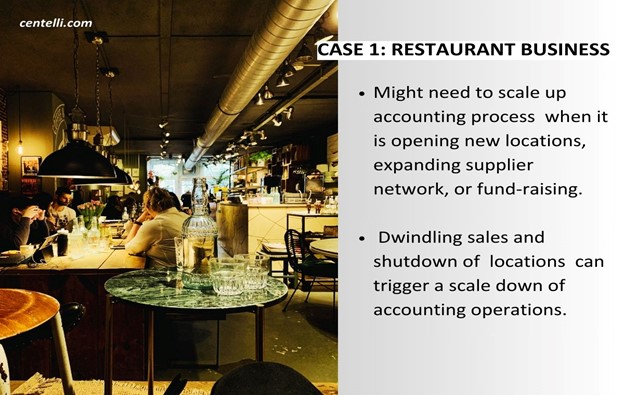
Following reasons could compel a business to downsize its accounting department:
- Economic Downturn: During an economic downturn, a business may need to reduce costs by cutting staff or outsourcing certain functions.
- Changes in Industry: Changes in regulations or technology may require a business to modify its accounting process.
- Declining Sales: When a business is experiencing declining sales, cost cutting becomes inevitable to remain profitable.
How the Scaling of an Accounting Process Might Look Like
Let’s look at three examples of when and why a business needs to readjust or realign its accounting operation.
Case 1: Restaurant Business Scaling its Accounting Process
A small restaurant chain with 10 locations plans to add five new locations in the next 12 months. It will be hiring new staff, expanding its menu, adding more suppliers, and investing in accounting software and technology upgrades.
However, it may need to scale down its accounting process if it is closing locations or experiencing a decrease in sales.
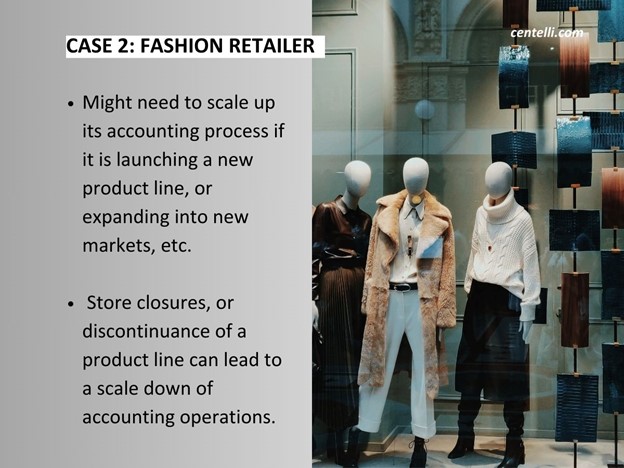
Case 2: Fashion Retail Business Scaling its Accounting Operation
A fashion retailer operates 50 offline stores and an e-commerce shop nationwide. It may need to scale up its accounting function if it is launching a new product line, expanding into new markets, or raising funds for expansion.
On the contrary, the fashion chain may be forced to scale down its accounting activity if it is discontinuing a product line, seasonal demand loss, or closing stores.
Case 3: Accounting or CPA Firm Scaling its Client Accounting
An accounting/CPA firm (size regardless) may need to scale up its client accounting process if it is taking on new clients or expanding its service offerings.
The firm might also require additional resources to handle the high workload of the busy tax season and specific projects.
However, the firm may need to cut back on its accounting operations if it is losing clients or experiencing a decrease in demand for its services due to economic downturn or other reasons.
Challenges of Scaling In-house Accounting
A scalable accounting process is designed to be flexible enough to meet the changing business needs. This way, it’s easier to sustain or enhance its performance, efficiency, and capacity as required.
However, building an in-house scalable accounting workflows can be challenging due to the following reasons:
- Upfront Costs: Setting up an in-house team warrants significant initial investments in infrastructure and employee hiring and training.
- Expertise: Finding and retaining qualified accountants can be difficult. In-house teams may lack specialized skills for complex financial tasks.
- Management Overhead: In-house operation requires management oversight. It is time-consuming and distracts from core business activities.
- Technology: Ensuring the latest accounting software and data security systems can be complex and costly in-house.
- Adapting to Growth: A business may need to recruit additional staff and invest in infrastructure and technology upgrades in its growth phase. It can be cumbersome and expensive.
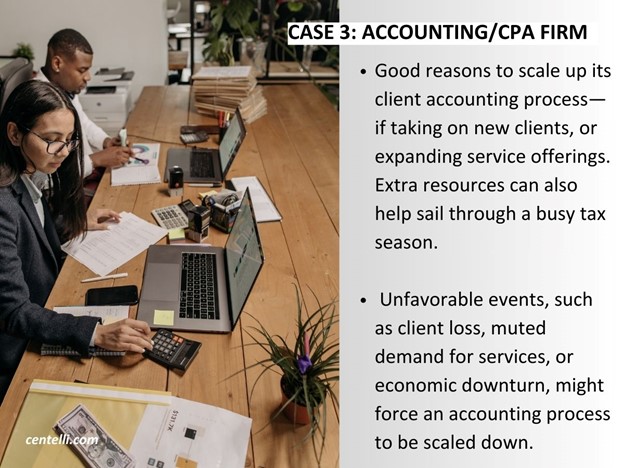
Scaling up your in-house accounting often requires significant capital investment and additional resources. Conversely, scaling down can lead to underutilized staff and wasted efforts. Thankfully, accounting outsourcing provides a flexible and cost-efficient solution in both scenarios.
Outsource Your Way to Scalable Accounting
Hiring a third-party accounting service brings in so many advantages:
- Resources: Your accounting outsourcing services partner will bring in its expertise, staff, technology and infrastructure. They’ll not be your responsibility anymore.
- Reduced Costs: You don’t have to invest upfront, nor do you need to worry about the ongoing operational expenses. So, you get to save massively.
- Freedom from Daily Supervision: Your outsourced accounting services provider will perform all the delegated accounting tasks on your behalf. So, you are free from the everyday management burden, while they keep you updated with regular reports and communication.
- Custom Solutions & Flexible Payment Options: You can tie up with a service provider that offers customized solutions and flexible payment packages.
- Quick Scale up or Scale Down: Scalable accounting services maintain a vast stream of resources they can add as per your need. Also, you do not need to sign a binding contract if your business needs are evolving or prone to seasonal and cyclic changes. This allows you to scale up or down quickly when needed, saving you the hassle and financial damages.
Need a flexible accounting process that adapts to your changing business needs? You can easily achieve a scalable accounting process by outsourcing with Centelli, saving you the hassle and high costs of in-house operation. Get your free consultation today!
The Bottom Line
All organizational systems and should be able to adapt to the changing business needs. A scalable accounting function ensures efficiency and supports strategic decision-making, all while managing costs and risks effectively.
So, whether you have an in-house function or choose to outsource your accounting, you may need to scale it at some point.
